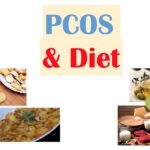OSTEOPOROSIS Diet Plan
OSTEOPOROSIS Diet Plan – A balanced diet that includes specific nutrients can help strengthen bones and reduce the risk of fractures. In this blog, we will discuss the importance of nutrition in managing osteoporosis and provide you with an OSTEOPOROSIS Diet Plan. We will cover the essential nutrients for strong bones, the foods to include and avoid, and sample meal ideas to help you get started on your path to healthy bones.

Osteoporosis is a common condition that affects millions of people worldwide. It is a condition that weakens bones and makes them more susceptible to fractures. Fortunately, there are steps you can take to manage and even prevent osteoporosis, and one of the most important is following a healthy diet plan.
Osteoporosis
Osteoporosis is a medical condition characterized by the progressive loss of bone density and quality which leads to weak and fragile bones. This condition increases the risk of bone fractures, even from minor injuries or falls, and can severely impact an individual’s quality of life.
Osteoporosis is also referred to as the “silent disease” because it often has no symptoms until a fracture occurs. It affects both men and women, although postmenopausal women are at higher risk due to the decline in estrogen levels. Age, genetics, lifestyle factors, and certain medical conditions can also increase the risk of developing osteoporosis.
Importance of diet in managing osteoporosis
A healthy diet is an essential component of managing osteoporosis, a condition characterized by weak and brittle bones. Adequate intake of nutrients such as calcium, vitamin D, magnesium, and phosphorus is necessary for bone health and can help prevent bone loss and fractures. Calcium is a key mineral that is necessary for building and maintaining strong bones.
Vitamin D helps the body absorb calcium and also plays a critical role in bone health. Magnesium is needed for bone mineralization, while phosphorus is essential for bone structure and strength. The recommended daily intake of calcium for adults aged 50 and older is 1,200 milligrams per day, while the recommended daily intake of vitamin D is 600 to 800 international units per day.
Moreover, a balanced diet that includes a variety of fruits, vegetables, whole grains, and protein sources can also promote overall health and well-being.
OSTEOPOROSIS Diet Plan
Here’s a sample OSTEOPOROSIS Diet Plan that you can follow:
Breakfast:
- Oatmeal with milk and almonds.
- Whole wheat toast with avocado and a boiled egg.
- Idli (steamed rice cakes) with sambar and coconut chutney.
Mid-morning snack:
- A glass of buttermilk.
- A fruit salad with papaya, guava, and kiwi.
- A handful of roasted chana (chickpeas).
Lunch:
- Roti (whole wheat flatbread) with paneer (cottage cheese) and mixed vegetable curry
- Brown rice with dal (lentils) and spinach
- Chicken tikka with cucumber raita and mixed vegetable salad
Mid-afternoon snack:
- A bowl of mixed nuts (almonds, walnuts, and pistachios)
- A cup of green tea with honey
- A small bowl of Greek yogurt with berries
Dinner:
- Grilled fish with broccoli and sweet potato mash.
- Vegetable pulao (rice dish) with mixed vegetable raita.
- Tofu stir-fry with bell peppers and mushrooms.
Bedtime snack:
- A glass of warm milk with turmeric and honey.
Foods to Include in Your OSTEOPOROSIS Diet Plan
Here are some foods to include in your OSTEOPOROSIS Diet Plan:
Dairy products: Milk, cheese, and yogurt are excellent sources of calcium, which is essential for building and maintaining strong bones.
Leafy greens: Vegetables such as spinach, and broccoli are rich in calcium, magnesium, and vitamin K, all of which contribute to healthy bones.
Fatty fish: Fish such as salmon, and sardines, are rich in vitamin D, which helps the body absorb calcium and maintain bone health.
Nuts and seeds: Almonds, walnuts, and chia seeds are all good sources of calcium, and phosphorus, which are essential for bone health.
Soy products: Tofu and soy milk are rich in calcium and other nutrients that promote bone health.
Fortified foods: Some breakfast cereals, orange juice, and milk are fortified with calcium and vitamin D. These are good choices for those following an OSTEOPOROSIS Diet Plan.
Tips to Keep Bones Healthy
Here are some tips to keep bones healthy:
- Consume a balanced diet rich in nutrients essential for bone health, including calcium, vitamin D, magnesium, and phosphorus.
- Engage in regular weight-managing exercises such as walking, jogging, or resistance training, as these activities help to strengthen bones and prevent bone loss.
- Avoid smoking and limit alcohol consumption, as both can negatively impact bone health.
- Get enough sunlight exposure to maintain healthy levels of vitamin D in the body, which helps the body absorb calcium and maintain bone health.
- You can add supplements if your diet is inadequate in specific nutrients essential for bone health.
Conclusion
A balanced and nutrient-rich diet is crucial for managing osteoporosis and promoting strong and healthy bones. By incorporating the right foods and nutrients, a person can reduce the risk of bone loss and fractures.




